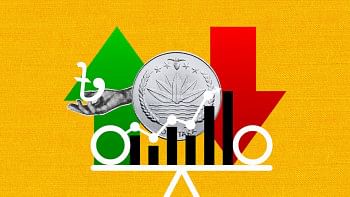Dealing with academic failure

Failure is a strong word, and when it comes to academics, it's often not an accurate way of representing any situation. Yet, to a student going through any sort of struggle, this word dominates their thoughts. In a culture where education is valued above all, anything short of excelling in academics is looked down upon by most people. As a result, the student's self-perception suffers the most.
The truth of the matter is that education is a pill prepared the same way for everyone, but not everyone swallows it the same. In a class of forty or fifty students, all of whom have the same curriculum being taught to them by the same teacher, it's only natural that some will absorb the knowledge better than others.
"Back in school, I wasn't exactly the brightest student in the room. Neither my family nor my teachers had high expectations for my academic performance. Some of them believed I wouldn't even pass my exams. They weren't entirely wrong; I did end up failing my A levels," says Anica Hossain, currently a fourth-year student at University of Liberal Arts Bangladesh.
The sense of failure is followed by guilt, even though there may be legitimate reasons and unavoidable circumstances that lead to an academic setback.
"I carried a sense of guilt because my parents were spending a significant amount of money on my education. However, I couldn't bring myself to care much about my grades. I had no clear aspirations of attending a prestigious university, and my mental state was far from ideal due to ongoing family conflicts. These issues prevented me from focusing on my studies," shares Anica.
Ziaus Shams*, a recent Computer Science and Engineering graduate from Dhaka University, shares his story with us.
"It was a unique case for me because I didn't have to repeat my second year of university because of failed courses or low CGPA. Yet, even if the 'academic setback' was something you chose because of bad mental health and low motivation, you often get treated like a failure anyway. It's always tough for your family members to accept such a decision, and even teachers don't take it well. And after you've heard enough teachers or people question the worth of someone who 'fails' and takes 'readmission', you start questioning your self-worth," he shares.
In most cases, no one is as aware of the reasons behind a student's shortcomings as the student themselves, yet it's difficult to get out of the guilt and the mental struggle that follows an academic setback. The road to recovery, thus, becomes rockier.
"It always seems harder than it actually is," says Syeda Maisha Ali, who is an adjunct lecturer at North South University. "In the bigger picture of the job market and life afterwards, an exam or even a degree is miniscule. It is helpful to keep in mind that as long as a student can give their best effort, whatever happens after that depends on luck and other variables."
The fact that academic failure, or any sort of setback in life, is mostly driven by luck can be proven by the fact that most people who suffer from these problems usually find a way to claw back to where they want to be. It's the draw of luck that is sometimes bad, and sometimes good.
"After completing my A levels, a stroke of luck came my way in the form of an internship opportunity at the EMK Center, thanks to my graphic design skills. This workplace became a pivotal point in my life, redirecting me towards a more purposeful path," shares Anica. For her, hard work and perseverance paid off, and she's now pursuing her education with full funding at ULAB.
Taking a look at the underlying causes of any sort of academic setback, and finding ways to deal with them is also necessary.
"It required immense mental strength to deal with the fact that I repeated a year of education. Working on myself to overcome my inferiority complex was helpful. I figured I had to reinvent myself to ensure I wasn't getting stuck in the same loop or struggles. For myself, changing friend circles, engaging in more hobbies or activities, writing about what I feel definitely helped to improve and stabilise my mental state for the long run," recounts Ziaus.
To cap it all off, this is what Syeda Maisha Ali has to say to students going through a tough time academically, "Students must remember that institutions have their own mechanisms and those are not always going to be compatible with the nature of an individual. A student's responsibility is to learn and improve themselves, holding themselves to an institution's standards is not always the answer. In the end, the best thing a person can do is to focus on themselves."
Azmin Azran is the editor of Campus.


 For all latest news, follow The Daily Star's Google News channel.
For all latest news, follow The Daily Star's Google News channel. 








Comments